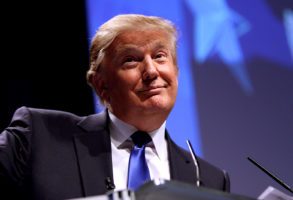Published September 17, 2015
The election this past weekend of Jeremy Corbyn to lead the British Labour Party is a huge political development in the United Kingdom. Mr. Corbyn is not just liberal; he’s hard left, having expressed his support for (among other things) unilateral nuclear disarmament, the nationalization of some of Britain’s biggest industries, and talks with Hamas and Hezbollah, as well as opposing bombing ISIS. He may well be the most left-wing leader in the history of the Labour Party, which is saying something.
But the Corbyn victory is not an isolated event; it is part of a broader, trans-Atlantic trend. Citing not just the popularity of Corbyn but the rise of Donald Trump and avowed socialist Bernie Sanders in America, as well as unfolding events in Greece and France, former British Prime Minister Tony Blair argues, “There is a politics of parallel reality going on, in which reason is an irritation, evidence a distraction, emotional impact is king and the only thing that counts is feeling good about it all.”He went on to say this:
The explanation for this parallel reality is something to do with people feeling empowered by their ability through it, to “fight back” against “the system”, the traditional ways of thinking about politics with all its compromises, hard decisions and gradual increments. It is the clarity of full-throated opposition versus the chin-stroking nuance of: “What would we do if we were in government?” It’s a revolution but within a hermetically sealed bubble…
Mr. Blair concluded this way:
Because it is a vast wave of feeling against the unfairness of globalisation, against elites, against the humdrum navigation of decision-making in an imperfect world, it persuades itself that it has a monopoly on authenticity. They’re “telling it like it is”, when, of course, they’re telling it like it isn’t.
Mr. Blair is quite right. We’re seeing a lot of people confuse politics with theatrics, a governing philosophy with emotivism. It’s the politics of make-believe, of cartoon heroes and cartoon villains, and it holds out the promise of simple and easy answers. Exhibit A: Earlier this week Donald Trump, when asked for details about how long it would take to round up 11 million illegal immigrants living in the U.S., said he could achieve it within 18 months to two years “with really good management.” (George Will points out that “Trump’s roundup would be about 94 times larger than the wartime internment of 117,000 persons of Japanese descent.)
I understand that for some people there’s an appeal to the politics of make believe, to saying “really good management” will fix all our problems in the blink of an eye. (Trump again: “I would know how to bring ISIS to the table or, beyond that, defeat ISIS very quickly. And I’m not gonna tell you what it is tonight.”)
But politics that is divorced from reality is not politics; it’s self-indulgence, a charade. Those with a proper grasp of politics understand that life is complicated, that many of our problems are complex and daunting, and that dramatic change is rare and rarely easy. They know we live in a broken world where things often go wrong, expectations need to be tempered, our grasp of truth and knowledge is incomplete and perfection is always beyond our grasp.
Last night at the Reagan Library, we saw people who are accomplished in the art of politics overwhelm a man accomplished in the art of entertainment. People who have actually governed successfully – along with one very impressive woman from the world of business — exposed a crude, superficial television personality who represents, and whose rise can be partly explained by, the Kardashian culture.
The question is whether the appeal of Donald Trump, the avatar of anti-reason, was significantly diminished over the course of a three-hour debate in Simi Valley. Will ratiocination, which is supposed to guide politics, prevail in the party of Lincoln? If it does, the GOP should be fine come the 2016 election. If not, Mr. Trump will do to the Republican Party what Jeremy Corbyn will do to the British Labour Party: Destroy it.
Predicting how the public will respond to Donald Trump is a risky business. He’s certainly sustained his support longer than I imagined. But today, conservatives in America may have some reason to hope that last night the fever began to break, that the Trump madness will end.
Peter Wehner is a senior fellow at the Ethics and Public Policy Center and a contributing opinion writer for the New York Times.








